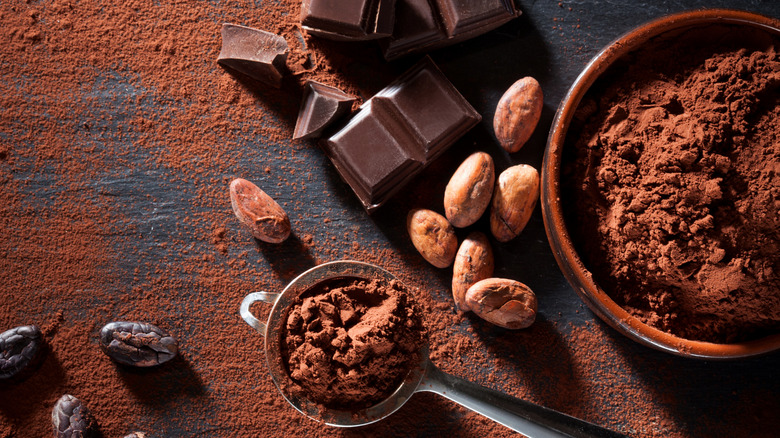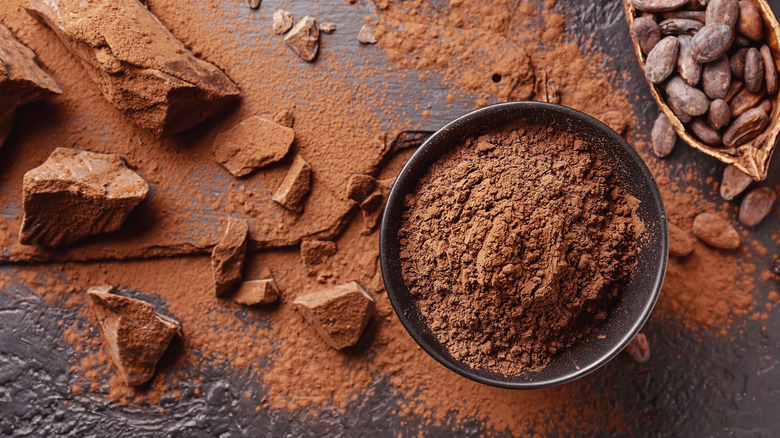Are Dutch Process And Natural Cocoa Powder The Same Thing?
It's always important to have the right tools for the job, and in the kitchen, those tools are oftentimes ingredients. Even though it seems like they accomplish the same thing, there is a remarkable difference between sesame oil vs. extra virgin olive oil; yams vs. sweet potatoes; baking soda vs. baking powder; and so on. They all have their own flavors, and more often than not, their own properties and uses in the kitchen. Cocoa powder is no different. It can already be hard to tell the difference between cocoa and cacao, but there's another major variation out there that's important to know as well: the difference between Dutch process and natural cocoa powder.
According to Serious Eats, cocoa powder is made using processed cacao beans. These are mostly sourced from West African countries along the equator like Ghana, Nigeria, and the Ivory Coast (via Statista). They are then fermented, dried, and roasted before being processed and separated into cocoa butter and cocoa solids. Those solids are finally turned into an easy-to-use natural cocoa powder for cooks to infuse recipes with pure chocolaty notes. The Dutch process version, however, involves another step. Dutched cocoa powder incorporates a potassium carbonate wash, which lowers the powder's acidity and creates a flavor that Serious Eats describes as "earthy, woodsy," and mellower than more acidic natural cocoa powder.
When to use these different cocoa powders in recipes
Besides the flavor, Taste of Home says the important difference to note between these cocoa powders is that a Dutch process powder will not react with alkaline leaveners, like baking soda, in a recipe. Because it has less acidity than natural cocoa powder, it can't work together with non-acidic baking powder to make cakes, cookies, and other foods rise properly. This means that natural cocoa powder and Dutch process cocoa powder aren't always interchangeable, and using the wrong type of cocoa powder could result in a more dense baked good with a tighter crumb.
However, that doesn't mean that Dutched cocoa powder is off limits for desserts. If you prefer the deeper flavor and darker color of something made with Dutch process cocoa powder, all you need to do is check the ingredients list. If the recipe doesn't require baking soda for leavening, then it won't make a huge difference to work with Dutch process cocoa powder, per Serious Eats. If the recipe does need baking soda, just make sure that there is another ingredient with plenty of acidity (like buttermilk) to react with the baking soda, and you should be left with a final product with a deeper chocolate color and flavor profile. Finally, if you have some Dutch process cocoa powder around and don't want to misuse it, just save it for no-bake desserts, like chocolate ice cream, or for flouring your cake pans.

